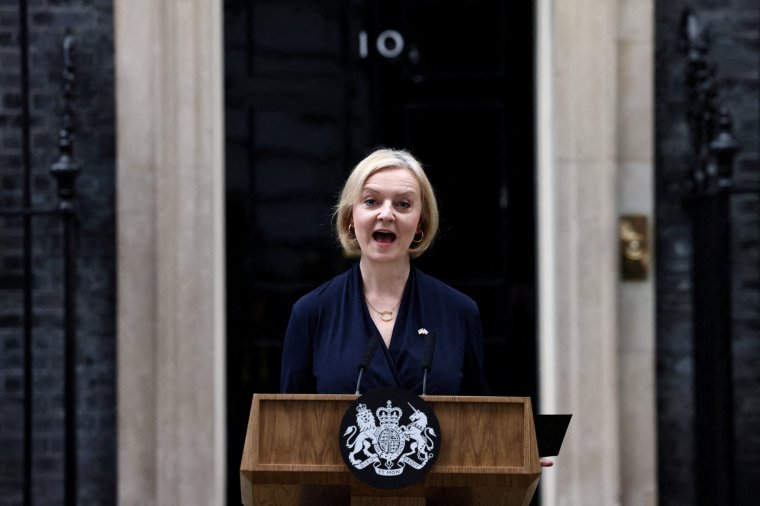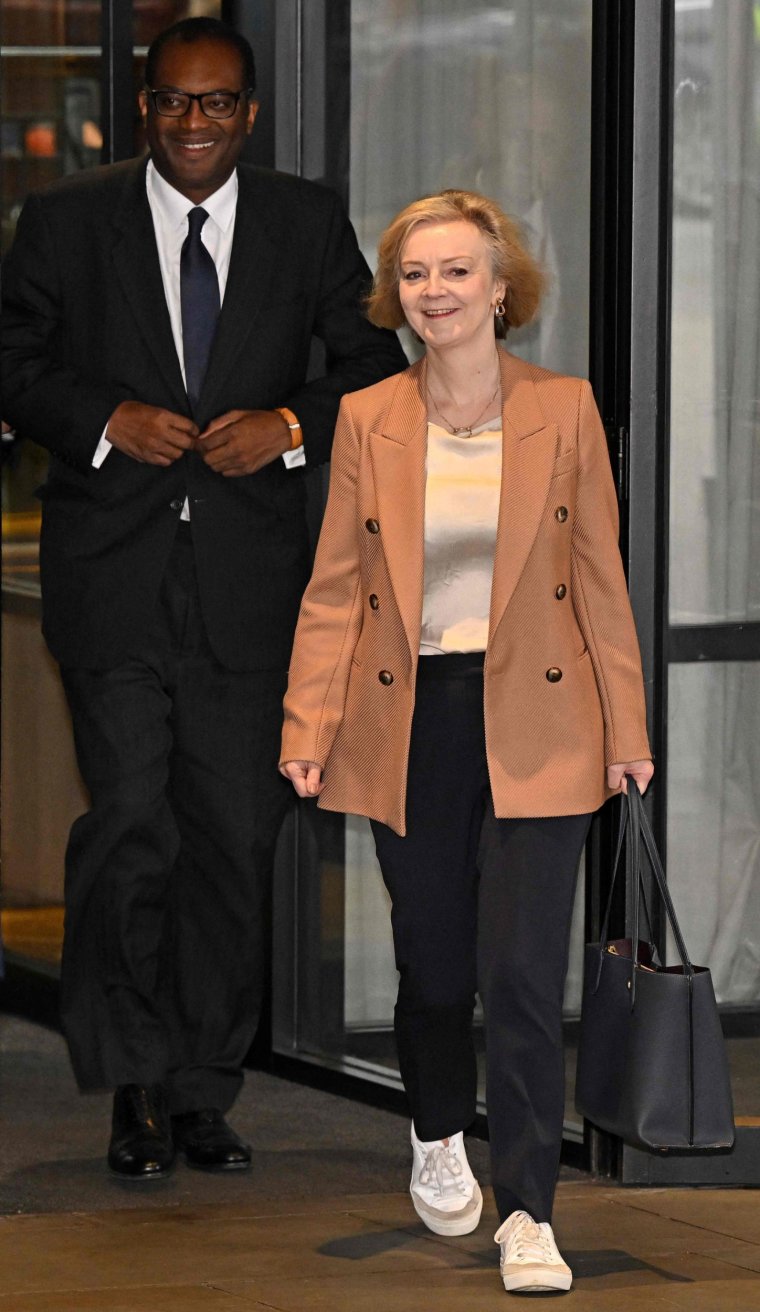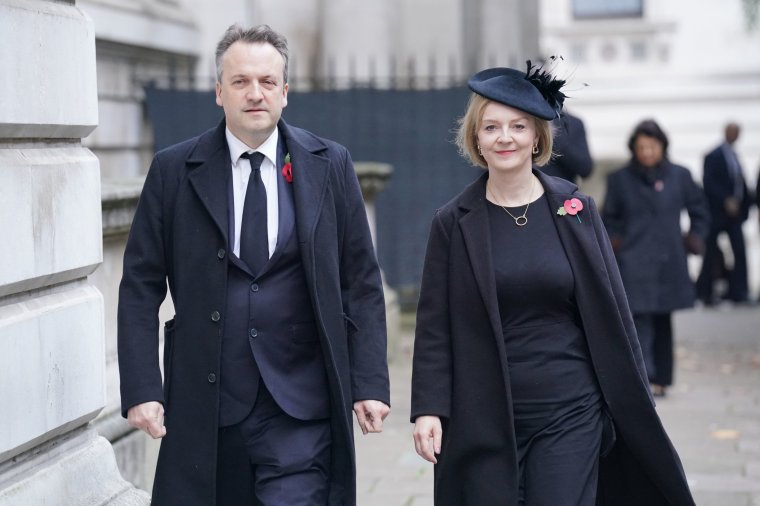Liz Truss says she underestimated resistance to her radical tax-cutting programme and was never given a “realistic chance” by both her party and a “powerful economic establishment”.
Returning to the media spotlight 100 days after her dramatic departure from Downing Street, the former prime minister laid bare her feelings about her brief time in office, sought to justify her economic ambitions and downfall, and pledged she will be raising her profile once again in the weeks to come.
Writing in The Sunday Telegraph, she said: “I am not claiming to be blameless in what happened, but fundamentally I was not given a realistic chance to enact my policies by a very powerful economic establishment, coupled with a lack of political support.
“I assumed upon entering Downing Street that my mandate would be respected and accepted. How wrong I was.
“While I anticipated resistance to my programme from the system, I underestimated the extent of it.”

Blames the Treasury
In her 4,000-word essay, Ms Truss described how she spent “many hours reflecting on what happened” since her 49-day term as prime minister ended in October last year.
She was forced to quit after she and Chancellor Kwasi Kwarteng attempted to enact a £45 billion package of unfunded tax cuts that panicked the markets and tanked the pound.
But she claims she was met with strong resistance when she tried to implement change.
She said she entered Downing Street “determined to deliver the bold action I had promised, with the economy and energy as my key priorities” and claimed she wanted to “go for growth by reversing the proposed rises in corporation tax and national Insurance and implementing a programme of economic reform in order to prevent recession and stagnation”.
However, she said this was “not in line with the instinctive views of the Treasury or the wider orthodox economic system”.
She said “pessimism and scepticism” about the growth of the British economy were endemic at the Treasury and accused those inside of “top-down tinkering” rather than real reform.
Ms Truss also hit out at a “powerful economic establishment” opposed to her plans, claiming that “large parts of the media and the wider public sphere had become unfamiliar with key arguments about tax and economic policy and over time sentiment had shifted left-wards”
The “Plan for Growth”, drawn up with her Chancellor, was a “conscious break from this orthodoxy” and met with positive reactions from some in the business world.
But she said “brewing in the background there was an issue relating to pension funds” that had not been mentioned to her or Mr Kwarteng by officials at the Treasury.
‘Tinderbox’ of liability-driven investments
She said she was not warned of the risks to the bond markets from liability-driven investments (LDIs) – bought up by pension funds – which forced the Bank of England to step in to prevent them collapsing as the cost of government borrowing soared.
“Only now can I appreciate what a delicate tinderbox we were dealing with in respect of the LDIs,” she said,
“It rapidly became a market stability issue and we had to act to stabilise the situation.
“While the Government was focused on investigating what had happened and taking action to remedy the situation, political and media commentators cast an immediate verdict blaming the mini-Budget.
“Regrettably, the Government became a useful scapegoat for problems that had been brewing over a number of months.”
Although she admitted she was “not the slickest communicator” and her decision to go to New York for the UN General Assembly as the markets went into meltdown may have been wrong, she insisted delivering her policy was “the right thing to do but the forces against it were too great”.

Downplays 45p tax rate
She said the furore over her plan to abolish the 45p top rate of income tax – not least from within her own party – was illustrative of the difficulties she faced.
“I underestimated the resistance inside the Conservative parliamentary party to move to a lower-tax, less-regulated economy”, she said.
In her overall package of measures, introduced in the mini-Budget on 23 September, she said the reduction of the top rate of income tax was “little more than a rounding error, equivalent to 0.2 per cent of government spending”.
She said although it was “economically sound” she underestimated the “political backlash”.
“I knew when I proceeded swiftly with my economic growth policy that there was a risk to my position”, she said. “But I believed that the biggest risk for the country would have been to do nothing.”
She said she did not take on the post of prime minister to “manage decline or to preside over our country sliding into stagnation”.
Standing by her original plan, she added: “Although there are many ways in which the policy could have been better communicated or tweaked to make it more acceptable, I struggle to see how that would have changed the fundamentals of what happened.”

Husband warned campaign would be ‘awful’
Speaking about the personal impact of her term in office, Ms Truss said her husband had tried to warn her against standing for party leader.
“No matter how uncertain the outcome and how tough the prospect of leading a fractious party at a difficult time – and my husband warned me that it would be awful – I could not duck the challenge”, she said.
She described the leadership campaign as “brutal” and said she was called “everything from immoral to insane”.
And she said she was “deeply disturbed” by having to fire her chancellor and close political ally Kwasi Kwarteng, who she said is an “original thinker and great advocate for Conservative ideas”.
She went on that it was “difficult to remain as prime minister after abandoning the thrust of the platform on which I had been elected” and she said “elements of the parliamentary party were not prepared to allow me to stay”.
Comeback on the cards
Although she said the experience was “bruising for me personally”, it has not deterred her from re-entering the fray.
She said she had “lost track” of the number of people who had contacted her since leaving Downing Street to say they “believe my diagnosis of the problems causing our country’s economic lethargy was correct” and shared enthusiasm for her planned solutions.
Optimistic for the future, she said would be expanding upon the lessons she had learnt in the coming weeks and months, adding: “I believe we can turn things around.”
Cool reception to Truss return
The Tory peer Lord Barwell, who was Theresa May’s chief of staff, was scathing about Ms Truss’s explanation for the failure of her premiership.
“You were brought down because in a matter of weeks. You lost the confidence of the financial markets, the electorate, and your own MPs,” he tweeted.
“During a profound cost of living crisis, you thought it was a priority to cut tax for the richest people in the country.”
Shadow business secretary Jonathan Reynolds told Sky’s Sophy Ridge on Sunday: “Will there ever be a Conservative willing to take responsibility for their own actions?
“Liz Truss had to stand down because her policies were incoherent and unsustainable, and the idea she’s been brought down by a ‘left-wing economic establishment’? She’s been brought down by straightforward economics.”
But Business Secretary Grant Shapps, who was Ms Truss’s Home Secretary for the final six days of her leadership, said her mistake was to push ahead with tax cuts before bringing inflation under control.
Mr Shapps said: “You have got to deal with the fundamentals first. You have got to reduce inflation, which is the biggest tax cut anybody can have.
“I notice she said they hadn’t prepared the ground for these big tax changes. What you have got to do is deal with the big structural issues first, deal with inflation first, deal with debt, and then you look towards tax cuts.
“I completely agree with Liz’s instinct to have a lower tax economy. We also know that if you do that before you’ve dealt with inflation and dealt with the debt then you end up in difficulty. You can’t get the growth out of nowhere.
“Rishi Sunak has come in, he has removed that premium because the markets didn’t like what was going on back then. So we are back to where we should be.”

